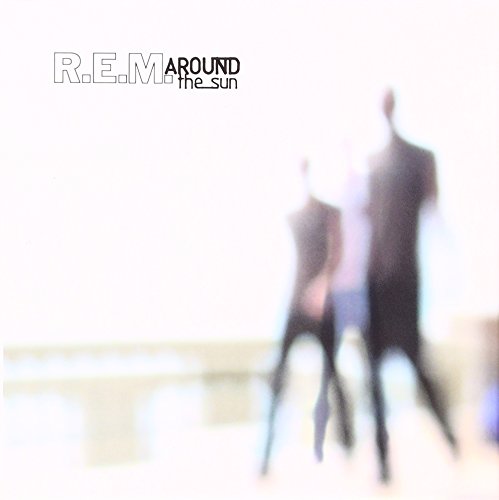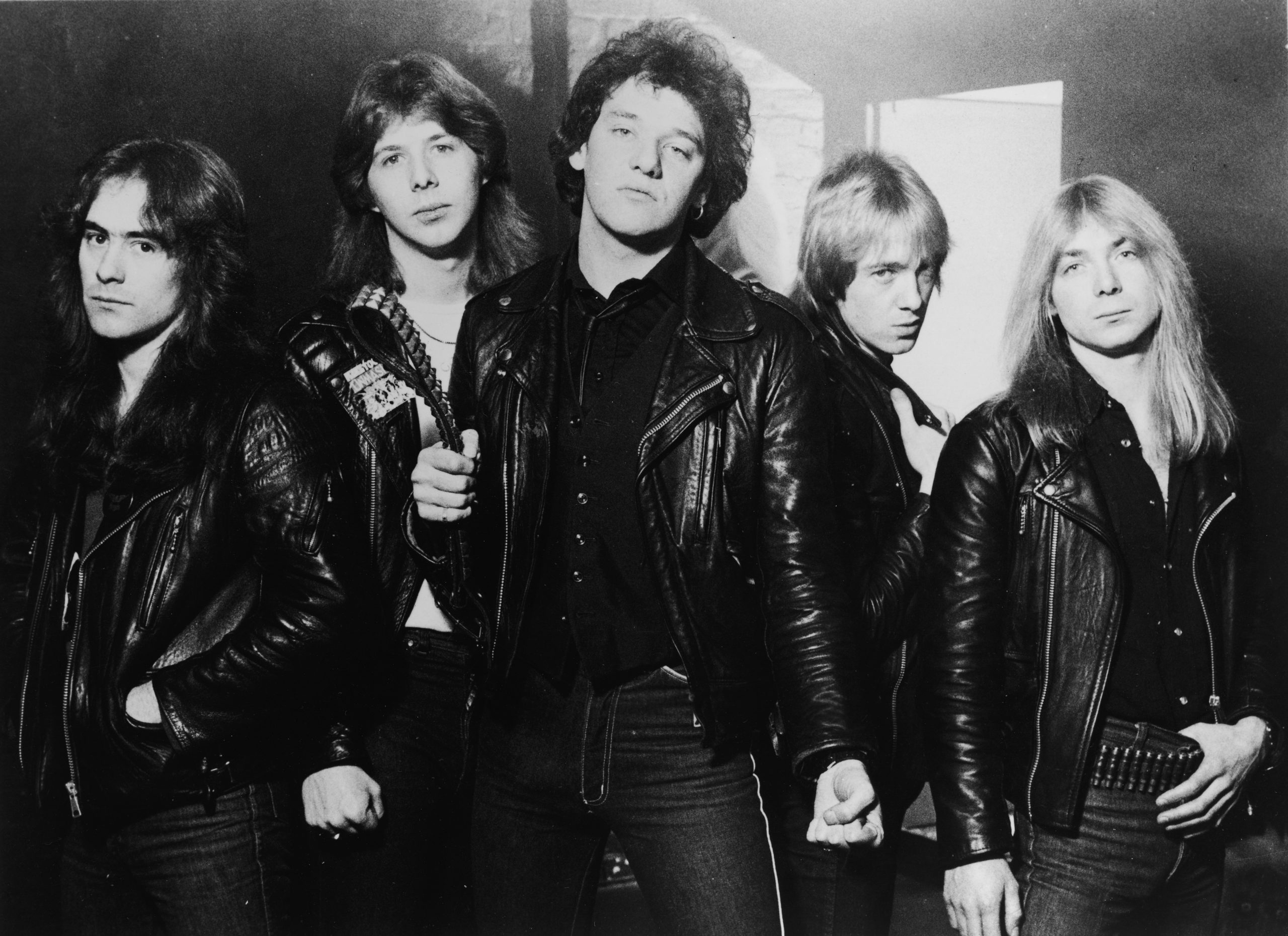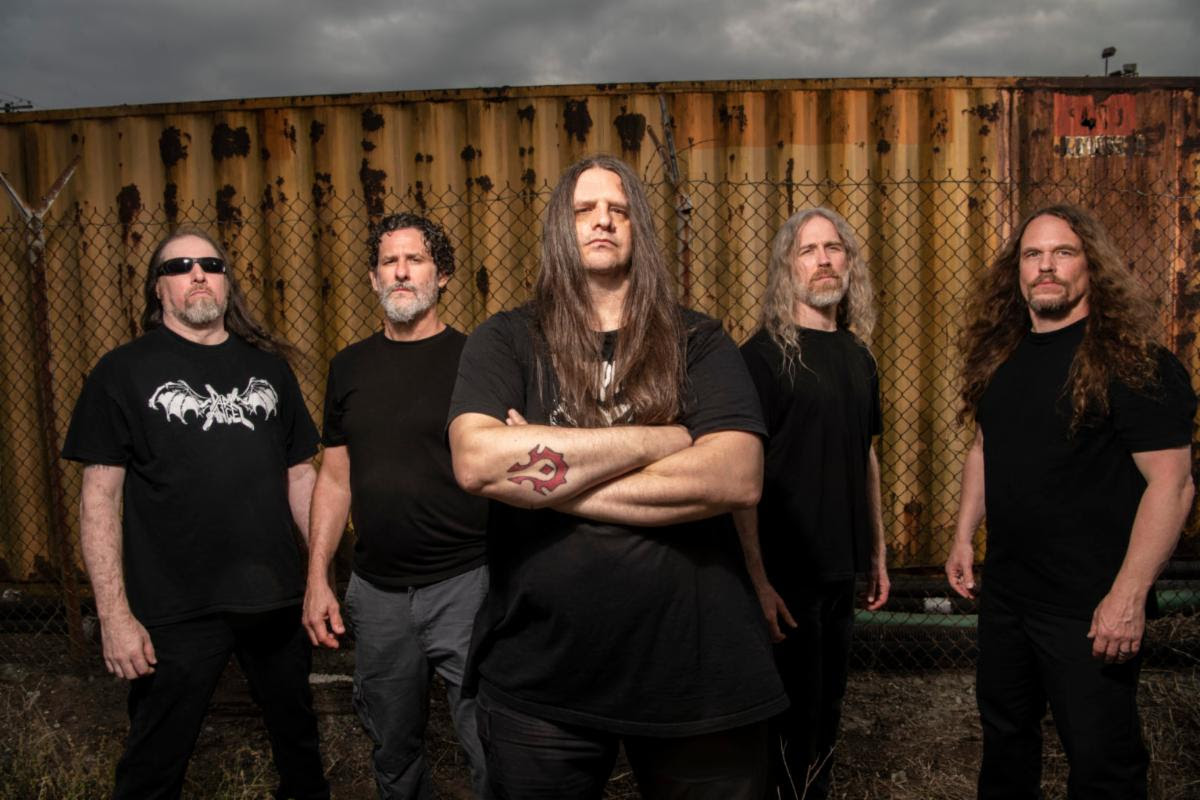While it is doubtless an oversimplification, the pantheonic 30-year run of R.E.M can essentially be broken down into a three-act drama.
Act One: Emerging without seeming explanation, as if some new, weird version of the Byrds had just crawled out of a backwater Georgia swamp, R.E.M. landed forcefully on the college radio and independent music scene with a seemingly fully formed and utterly indelible sound. Pete Buck's unmistakable Rickenbacker, Mike Mills' tuneful bass work and compelling harmonies, and Bill Berry's forceful drumming all served to abet the mysterious, oblique presence of lead vocalist Michael Stipe, a singer whose habit of mumbling non-sequiturs only seemed to invest them with a strange profundity. The youthful iteration of R.E.M. felt alien but approachable. Although many of their influences were cosmopolitan -- the Velvet Underground, Warren Zevon -- their own songs could often feel like vestiges of the antebellum South, set to a jangle rock beat. Brilliant, strange hooks appeared in seemingly endless multitudes. They were at once artistically ambitious and almost impossible to dislike. It was the closest thing to inevitable that they would, for better or worse, soon become ubiquitous pop stars.
Act Two: So it was foretold -- R.E.M. crosses over from indie favorites into the most famous band in the world. While the seeds were initially sown by the radio hit "The One I Love" on their brilliant final record for the indie label IRS, rock stardom was truly consecrated for the band on their first two major label releases Green and Out Of Time. This period marks the emergence of two elements of middle-period R.E.M., which will ultimately inspire, grate and occasionally run together. Leaving behind his idiosyncratic teen-journal utterances, Stipe emerges as a full-throated lyricist with a "message." Their ambition to grow the band's sound and scope is admirable, and on more than one occasion R.E.M. delivers terrific politically based anthems that prove as catchy as they are occasionally preachy. On the other hand, for the first time ever, some of the songs just out-and-out suck. Even many years after the fact, it is difficult to look at made-to-order hits like "Stand" and "Shiny Happy People" as anything more then a sad capitulation to the demands of what was then called "modern rock radio." Eventually, R.E.M.'s middle period would be utterly redeemed by the stark and uncompromising albums Automatic For The People and New Adventures In Hi-Fi. But there can be little doubt that amongst their peers (The Pixies, Meat Puppets, Replacements, etc.) R.E.M. was better positioned and more ambitious in their attempts to gain parity with the likes of U2.
Act 3: Following the frightening brain hemorrhage and subsequent retirement of original drummer Bill Berry in 1997, R.E.M. struggled admirably, but often fruitlessly to regain their footing. Berry, it seems, was more than a gifted drummer, but also a crucial part of the songwriting process and an invaluable arbiter of the direction of the band's sounds. In his absence over the proceedings, previously perceptible fault lines between the band members became more palpable, while the lengthy and drawn-out process that characterized the breach birth of many of R.E.M.'s later releases was a polar remove from the seemingly savant-like like ease of their earlier recordings. It is a tribute to R.E.M. that none of these records sound tossed off or indifferent; to the contrary, too often the listener can hear the gears grinding amidst the terrific exertion to find something, anything, that worked. They were really trying. Having recognized their own artistic exhaustion as a unit, R.E.M. made the principled decision to disband in 2011, unwilling to subject their legacy to a profitable but humiliating never-ending oldies tour.
Let’s be clear that rankings like these should be viewed as a conversation starter rather than scripture. Any number of R.E.M. albums could certainly be called their best, and there is always the chance that they knew something we didn't, and 20 years from now, one of the lower-ranking items here will ascend to a much higher place of privilege. So let’s buckle up and try this. Please, no wagering.

16. Around The Sun (2004): Around The Sun represents R.E.M. at its rudderless worst. Bill Berry is seven years in the rearview and the troika of Buck, Mills, and Stipe appear to be pulling apart in three disparate but indistinct directions. Slick production touches and almost literally phoned-in performances from the principals leave the album devoid of any spirit. The record was written during a time of intense political alienation for the steadfastly left Stipe, but even his attempts at political commentary, on tracks like "Leaving New York," Final Straw" or "The Outsiders" read as a pale shadow of R.E.M.'s earlier work.

15. Reveal (2001): Reveal feels like an ineffective embroidering on the already questionable ideas first established on Up. Lead single "Imitation of Life" is OK-ish enough, and it's about the best of a not-very-interesting bunch of songs. Whereas once the component members' distinct talents fit seamlessly together, Reveal sounds an awful lot like a bunch of strangers in a room making a record to fulfill a contract. The band is all over the map, and not in a good way.

14. Up (1998): R.E.M.'s first release minus drummer Bill Berry commences an inexorable decline that will soon reach its sad nadir. Without Berry's reliable backbeat and impeccable aesthetics the band indulges for the first time in "the fashions of the day," using sampling and loops to abet a sound that never previously required the presence of outside influences. This is clearly R.E.M.'s worst record up until this point, but not a total loss. Tracks like "Daysleeper" and "At My Most Beautiful" are reflections of a great band that still has something to say. It just seems there is complete confusion over how to say it.

13. Collapse Into Now (2011): The final R.E.M. full-length, Collapse Into Now possesses the character of at least being an acknowledgement that the end was nigh. If the last vestiges of marriage counseling ever had an accompanying album, it would be this one. Mike Mills' harmonies on the unfortunately named first single "Mine Smell Like Honey" feel like an attempt to express "I still love this band or at least I love what this band was." Amongst the post-Bill Berry albums, this is one of the more energetic efforts, perhaps owing to its inevitable, end-of-a-long-run feel.

12. Monster (1994): The guitar-driven Monster is a reflection of the grunge movement that R.E.M. helped to spawn and also a palate-cleansing, straightforward take on rock 'n' roll, the likes of which the band had not attempted since their first albums. The notion of R.E.M. in rock mode is welcome and pays great dividends on tracks like the infectious "What's the Frequency, Kenneth?" -- a media satire that has grown more meaningful and poignant over time. Unfortunately, not all of the songs rise to that level and tracks like "Bang And Blame" and "Crush With Eyeliner" fail to connect, despite the best of intentions. Monster is a solid record that sounds good but rarely resonates on a deep emotional level.

11. Out Of Time (1991): On Out Of Time, R.E.M. went from common rumor to household name. Everybody heard the lead single "Losing My Religion," a mandolin-driven contemplation on fame and its consequences, which stood out amidst other more "hard-rocking" fare and managed to keep company with much of the band's previous achievements. Lesser lights abound. The rap-rock hybrid "Radio Song" may have been a well-intentioned attempt to acknowledge the ever-increasing influence of hip-hop as a force in the mainstream, but the ultimate outcome of Michael Stipe exchanging verses with KRS-One feels forced and inauthentic. "Shiny Happy People" is arguably the worst song in the band's entire catalog; the kind of thing that one could easily imagine Graham Nash rejecting as "too sentimental." There are points on Out Of Time when it is nearly too painful to hear these one-time insurgents approach their unique sound so lamely. Then there is "Country Feedback" -- one of the greatest songs they ever recorded, a palpable, if frustrating acknowledgement that the band is still capable of genius.

10. Accelerate (2008): As the last, best gasp at recovering previous glory, Accelerate more than hit the mark. Standout tracks like "Living Well Is The Best Revenge" and "Horse To Water" help bring to mind some of the old bile and bite, while more contemplative gestures such as "Houston" remind us of R.E.M.'s ability to expertly run the full emotional gamut from sentiment to consequence. Still, this is no R.E.M. classic. Unfortunately, while the record is a concerted effort to resuscitate the band, the lean and mean 35 minutes that comprise Accelerate are too often characterized by filler like "Until The Day Is Done," "Supernatural Superserious," and the title track, which ends with Stipe, as if speaking for the album itself, repeatedly yelling "I'm incomplete."

9. Green (1988): R.E.M.'s long-awaited major label debut features some of both the finest and most regrettable music the band ever made. It is pointless to attempt to discern their intentions regarding such tracks as "Get Up" and the uniquely idiotic "Stand," either of which would have immediately qualified as the worst song on any of the band's previous records. At the same time, "Orange Crush," "Hair Shirt," and "World Leader Pretend" rest along the best moments in the band's catalog. This is the first time we begin to see R.E.M.'s willingness to compromise artistically, but not without significant moments of redemption.

8. Fables Of The Reconstruction (1985): Teaming with legendary Nick Drake, Fairport Convention, and Richard Thompson producer Joe Boyd must have felt like a natural fit for a group of music-history fanatics in the midst of a seemingly ceaseless winning streak of great material. Instead, R.E.M.'s third full-length turned into a kind of breach birth with many great songs loaded with potential, ultimately weighed down by a ponderous atmosphere of cautious self-seriousness. Having said that, what about those great songs? "Driver 8" is a top-notch rocker preoccupied with the rarely reflected-upon notion of what can go murderously wrong on a misguided commuter train. Meanwhile, "Can't Get There From Here," with its funk-driven verse, showcases the band's versatility and nearly unimaginable capacity to grab a memorable chorus out of the ether no matter what the idiom or circumstance.

7. Chronic Town (EP) (1982): R.E.M.'s first release was a five-song EP that essentially set the template for the game-changing approach to rock 'n' roll that would not only abet the band's ascent, but also paved the way for the vibrant American underground scene, which characterized much of the best music of the 1980s. Tunes like "Gardening At Night" and "Carnival Of Sorts (Box Cars)" might feel like relatively benign fare in retrospect, but at the time few were making music that sounded anything like this. Chronic Town is a great band planting their flag in the ground, an historic landmark that portended great things that actually came.

6. New Adventures In Hi-Fi (1996): Bill Berry's last record with the band ranks as one of their finest works and also one of the most idiosyncratic. New Adventures In Hi-Fi was recorded largely on the road during sound checks and rehearsals, and it captures the feeling of a touring band at their most vibrant and energized. Tracks like "E-Bow The Letter" and "New Test Leper" sound for all the world like an old band catching their second wind confidently, exploring contours and corners of songwriting they had previously only hinted at. Sadly, this would be the last album featuring the original lineup, and the absence of Bill Berry would resonate throughout the band's later stages.

5. Lifes Rich Pageant (1986): Following the relative creative disappointment of Fables Of The Reconstruction, R.E.M. regrouped with the more commercial producer Don Gehman and proceeded to record a less knotty, more pop-oriented fourth full-length, Lifes Rich Pageant, yielding largely sensational results. The record has been often overlooked but over time has proved itself among the best and most durable work the band has ever done. The unimpeachable classics "Begin the Begin" and "Fall on Me" are aided by brilliant, urgent tracks such as "I Believe" and "Cuyahoga." It is a release replete with atmosphere, one that can transport the listener to the kind of strange places that would inspire a song like "Swan Swan H." Life's Rich Pageant is perhaps the perfect amalgam of R.E.M. It is both fully accessible and still cloaked in mystery.

4. Murmur (1983): By the time of their first full-length release, the buzz was out about R.E.M. The B-52's and others had put Athens, GA on the map in terms of a viable music scene and the band's own excellent Chronic Town EP had set expectations high. That is not to say that anyone was prepared for Murmur: 12 brilliantly rendered tracks over the course of 44 minutes, which taken together rival any debut album in rock 'n' roll history. The inescapable classic is "Radio Free Europe" but that was just the tip of the iceberg for a remarkable gathering of unforgettable tunes. With Stipe still finding his voice both literally and metaphorically this version of R.E.M is really Peter Buck's band, his impeccable tastefulness always driving the band while steadfastly refraining from the kind of over-the-top guitar heroics that had become the go-to embarrassment for too many rock bands of the era. It's difficult to find a track on Murmur that doesn't work, from the pensive "Talk About The Passion" to the ebullient "Catapult" or "Moral Kiosk." Rarely has a young band sounded so assured in their initial outing.

3. Automatic For The People (1992): R.E.M.'s darkest and most elegiac release is a frequently moving contemplation on mortality and the meaning of success, making it similar in theme and scope to Bruce Springsteen's wonderful was-this-all-really-worth-it rumination Darkness On the Edge Of Town. Having attained a mass audience as ubiquitous staples on radio and MTV with their multi-million selling Out Of Time, the band takes a step back towards their rural roots (the album title is famously inspired by the slogan for an Athens' soul food restaurant) while fashioning yet another new sound, this one frequently high and lonesome even on uptempo fare like "The Sidewinder Sleeps Tonight" and "Man On The Moon." But the real essence of Automatic's power is in slow-burning acoustic dirges like "Try Not To Breathe" and ballads like the nostalgic but somehow not overly sentimental "Nightswimming." Ten years into their career and long after many had given up on the band's ability to create truly transcendent music Automatic For The People demonstrated a band once again operating at the peak of their powers.

2. Reckoning (1984): The previous year's Murmur had been an auspicious full-length debut by any standard, and scarcely anyone would have faulted the band for failing to climb the same heights with its follow-up. However, instead of a sophomore slump, the band did themselves one better, delivering 35 minutes of timeless pop -- burnishing a sound that boasted the peculiar property of sounding at once like everything good in rock 'n' roll, and also completely unlike anything we'd heard before. "Harborcoat," "South Central Rain," and "Pretty Persuasion" are all brilliant examples of strange, sideways pop songs that explode into unforgettable sing-along choruses. It should surprise no one that this material perked the ears of Stephen Malkmus and Robert Pollard. On their charming R.E.M. tribute "Unseen Power Of The Picket Fence," Malkmus goes so far as to read off the names of every track on Reckoning. Even "Time After Time," his "least favorite song" on the record, is still pretty good.

1. Document (1987): R.E.M.'s final release on the independent label IRS was a distillation of all of the gifts that had brought them rightfully to the brink of superstardom. It is a record that bristles with energy, powerful hooks, great humor, and righteous political indignation. As a lyricist, Stipe was never more dialed in: tracks like "Exhuming McCarthy," "Finest Worksong" and the legitimately standard-worthy "It's The End Of The World As We Know It (And I Feel Fine)" cast into bold relief the deep intelligence that has always seemed to lurk just beneath the surface of his writing. The second side is not quite as strong as the powerhouse first, and it can certainly be argued that other R.E.M. records possess a higher number of near-perfect tunes, but in terms of marrying their savant-like songcraft to their ambitious topicality, R.E.M. never did it better than this.






